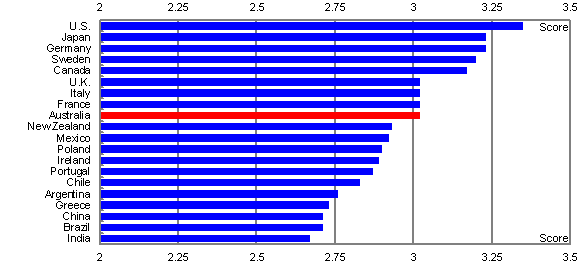The much awaited Innovation Statement has arrived. The ABC has a useful summary. Michelle Grattan has two lead-in pieces at The Conversation, where there is heaps more.
Bernard Keane at Crikey (paywalled) details how the Rudd/Gillard governments trailed their coat in this area without grabbing it by the throat, to mix the metaphors. The trouble says Keane is that we don’t have a business culture that facilitates innovation. Terry Cutler, back in 2008, wrote about our lifestyle approach to business:
Too many of our business owners or managers have what we might describe as a lifestyle approach to business. Even many of our so-called success stories look like under-performers when benchmarked globally. This lifestyle model of business strategy imposes a false ceiling on ambition: success is having the designer car in the garage, and the holiday home or two…. At a recent forum I actually heard people saying they didn’t need to expand or export because they were doing it quite comfortably as things are.
Sounds like a sensible balance to work and life-style, but the raw facts are that it is easier to grow a company by a second $10 million than it is to achieve the first.
Another problem is that our managers are not much chop. David Gruen speaking in 2012 put our manufacturing managers at mid-range:

For small companies, I think that’s flattering us.
Turnbull seems to be obsessed with high-tech start-ups, which, says Jason Murphy at Crikey, are a really bad idea.
The key features of a tech start-up are this: it has no customers and a strong chance of going broke. What most of these businesses do is funnel capital (investors’ money) into work nobody asked to be done. They build a product for which there is no market, exhaust their funds, close. They’re a bit like a make-work project.
Some of the better ones are picked up by venture capitalists, and are subsequently bought by larger businesses. So:
Murphy says we need to think beyond technology, and beyond start-ups of new ideas. Innovation also means innovation in operational and managerial processes and marketing as well as in products. Innovation in that sense can be best leveraged in big business.
Finally, the notion that teaching coding to primary school kids is the answer really gives me the willies. We need creative problem solvers with excellent human relationship skills.



